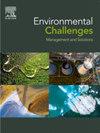通过机器学习揭示城市垃圾管理的可持续解决方案
Q2 Environmental Science
引用次数: 0
摘要
在快速城市化地区,城市固体废物的数量和复杂性日益增加,对环境和公共卫生构成重大挑战,特别是在低收入和中等收入国家。尽管努力改善城市固体废物管理,但许多城市仍然依赖分散的方法,无法确保安全处置和资源效率。本研究通过在整个MSWM链(包括收集、运输、处理和处置)中采用机器学习(ML)解决了一个关键的研究空白,同时使结果与可持续发展目标11 (SDG11)关于安全管理废物的目标保持一致。使用来自9个亚洲国家460个城市的数据,J48决策树算法被应用于MSWM实践的安全或不安全分类。该模型实现了73%的训练和67%的验证准确率,突出了安全管理的关键决定因素,包括预算支持、操作人员数量和收集车辆的可用性。调查结果显示,在接受调查的泰国城市中,70%的生活垃圾管理不安全,资金不足(每吨低于5美元)与不良结果密切相关。该研究为数据驱动的决策提供了一个透明、可解释的ML模型,并为通过改善投资和资源分配提高运营效率和推进可持续发展目标11提供了可操作的见解。本文章由计算机程序翻译,如有差异,请以英文原文为准。
Unveiling sustainable solutions for municipal waste management through machine learning
The increasing volume and complexity of municipal solid waste (MSW) in rapidly urbanizing regions pose significant environmental and public health challenges, especially in low- and middle-income countries. Despite efforts to improve municipal solid waste management (MSWM), many cities continue to rely on fragmented approaches that fail to ensure safe disposal and resource efficiency. This study addresses a critical research gap by adopting machine learning (ML) across the entire MSWM chain, including collection, transportation, treatment, and disposal, while aligning the outcomes with Sustainable Development Goal 11 (SDG11) on safely managed waste. Using data from 460 cities across nine Asian countries, the J48 decision tree algorithm was applied to classify MSWM practices as safe or unsafe. The model achieved 73 % training and 67 % validation accuracy, highlighting key determinants of safe management, including budget support, number of operators, and availability of collection vehicles. Findings reveal that 70 % of MSW in surveyed Thai cities is unsafely managed, with inadequate funding (below US$ 5 per ton) strongly linked to poor outcomes. This study contributes a transparent, interpretable ML model for data-driven decision-making and offers actionable insights for enhancing operational efficiency and advancing SDG11 targets through improved investment and resource allocation.
求助全文
通过发布文献求助,成功后即可免费获取论文全文。
去求助
来源期刊

Environmental Challenges
Environmental Science-Environmental Engineering
CiteScore
8.00
自引率
0.00%
发文量
249
审稿时长
8 weeks
 求助内容:
求助内容: 应助结果提醒方式:
应助结果提醒方式:


